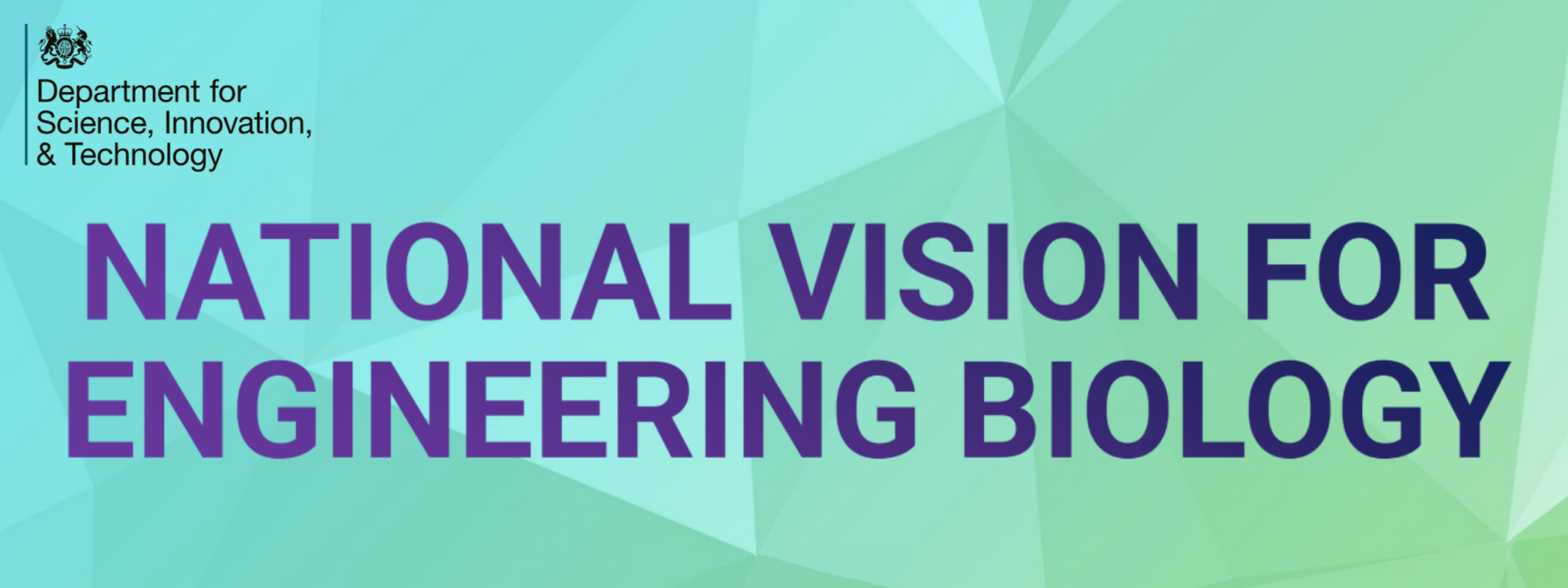
Submitted by S.A. Norwood on Wed, 13/12/2023 - 17:06
Image credit: Department for Science, Innovation & Technology
The UK Government has published a new “National Vision for Engineering Biology'' highlighting strengths, challenges and opportunities in UK Engineering Biology research.1 The report outlines how the government plans to support the growth of the bioeconomy up to 2030, including pledging £2 billion in investment.
Following the announcement of Engineering Biology as one of the the UK government’s top five priorities for research earlier this year2, and a recent call for evidence from the sector3, this vision aims to define the government’s collective ambition for engineering biology in the UK.
The report acknowledges the potential of Engineering Biology to provide solutions to challenges in a wide variety of sectors including health, agriculture and food, chemicals and materials and low carbon fuels. Cambridge-based companies Colorifix (co-founded by former IRC Co-Chair Prof. Jim Ajioka) and Bit.Bio (founded by University of Cambridge Neurosurgeon Dr. Mark Kotter) are also highlighted as leaders in the areas of chemicals & materials and health respectively.
|
Some of the government’s key objectives for achieving this vision include:
|
Engineering Biology IRC Co-Chair Dr Jenny Molloy has welcomed the announcement, saying “We are excited to see the UK government's new vision for how to expand and strengthen our world-class engineering biology ecosystem. We especially welcome their commitment to responsible research, and appreciate the role that colleagues from the IRC and Centre for Science and Policy have played in convening conversations with government on responsibility, safety and security."
Earlier in the year Engineering Biology IRC Co-Chairs Dr Jenny Molloy and Prof. Laura Machesky led the IRC steering committee in a response to the government’s call for evidence3, which informed the vision. Dr Molloy added, "The University of Cambridge and the EngBio IRC have a major role to play in advancing engineering biology as a truly transformative technology in the UK and globally. We will use the National Vision to inform our own strategies for bringing local expertise from across disciplines together to unlock the promise of engineering biological systems for science and society.”
You can read the government’s full vision here
Links & References
1National Vision for Engineering Biology. Department for Science, Innovation and Technology. (2023)
2The UK Science and Technology Framework: taking a systems approach to UK science and technology. Department for Science, Innovation and Technology. (2023)
3Engineering biology: call for evidence. Department for Science, Innovation and Technology. (2023)
Author Information
Coordinator and Events Manager
Engineering Biology Interdisciplinary Research Centre
University of Cambridge

